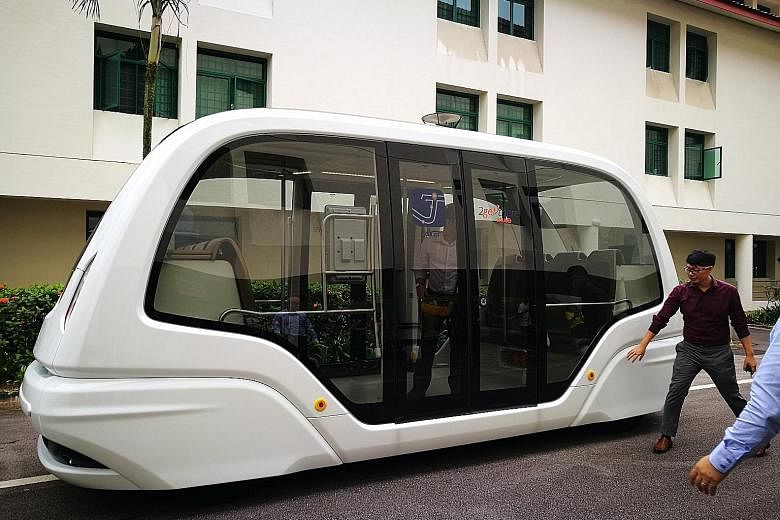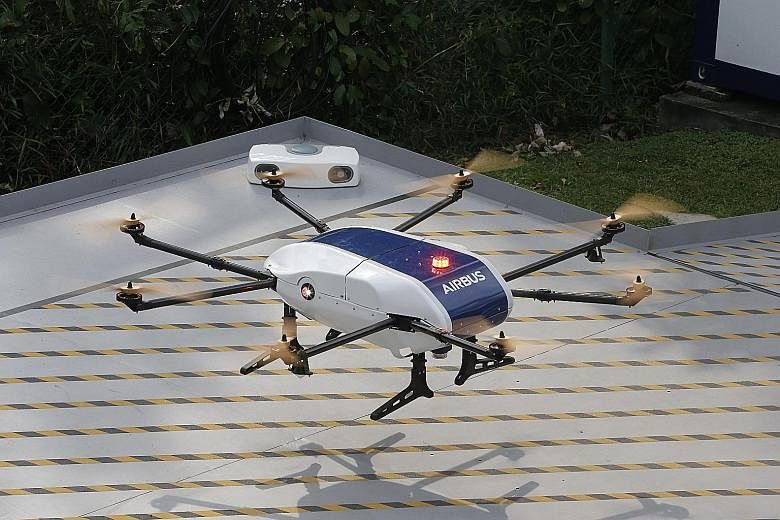By next year, at least two 5G networks will be rolled out in Singapore to enable the first next-frontier commercial applications, such as driverless cars and virtual reality content-streaming services.
The timeline will place Singapore among the front runners in 5G applications roll-out using the most advanced technologies that do not piggyback on existing 4G technologies.
Towards this end, the Infocomm Media Development Authority (IMDA) has called for interested telcos to submit detailed proposals on their deployment plans, with the intention to assign 5G airwaves to two winning submissions.
This will be done through a regulatory process known as a call for proposal. An airwaves auction will not be conducted.
Proposals will be assessed on telcos' ability to meet baseline regulatory requirements. These include achieving 50 per cent 5G network coverage islandwide by 2023 and willingness to sell network services wholesale to other mobile operators not issued with the airwaves.
The proposer's financial capability to roll out the proposed 5G network is also a key criterion, said IMDA yesterday, in announcing a public consultation to seek feedback on the call for proposal.
The public consultation, which will last until June 19, also seeks the public's view on the airwaves assignment approach and the annual fees to be paid for using the 5G airwaves.
Minister for Communications and Information S. Iswaran told Parliament yesterday that 5G technology and networks will be a critical part of Singapore's digital economy.
Singapore hopes to be among the first to develop industrial applications such as driverless buses, autonomous excavators and delivery drones.
"To further differentiate Singapore's 5G strategy, we also aim to advance innovation in secure 5G applications and services... that we can potentially export to the rest of the world," Mr Iswaran said.
Asked if Huawei Technologies will be blocked from Singapore's 5G network, the IMDA said: "Singapore encourages vendor diversity in our telecommunication systems to mitigate risks from dependency on any one vendor."
The authority added that telcos should ensure they meet quality of service, resilience and security requirements it requires of them.
The United States has been trying to stop its allies from using 5G mobile systems supplied by Huawei, for fear that the Chinese government could use the equipment for espionage.
The race for 5G supremacy is linked to economic progress, as 5G networks promise 20 times faster surfing speeds than what 4G networks offer and the ability to connect 1,000 times more devices.
The increased capacity and speeds offered by 5G networks will also be able to support industrial applications, such as driverless cars and smart appliances, which require a constant connection without lag.
Three mobile network operators - Singtel, StarHub and M1 - have been testing all kinds of 5G applications, from virtual-reality content streaming to unmanned drones over the past few months.
The IMDA plans to allocate the 3.5GHz, 26GHz and 28GHz bands for 5G in the initial tranche of spectrum allocation to telcos with the winning proposals.
This will be sufficient for at least two nationwide 5G networks, said the authority.
At the same time, the IMDA will continue to waive the airwaves fees for telcos that are keen to continue with 5G trials after this year.
The first 5G-capable phones from handset-makers such as Samsung and Oppo are expected to go on sale some time this year.




